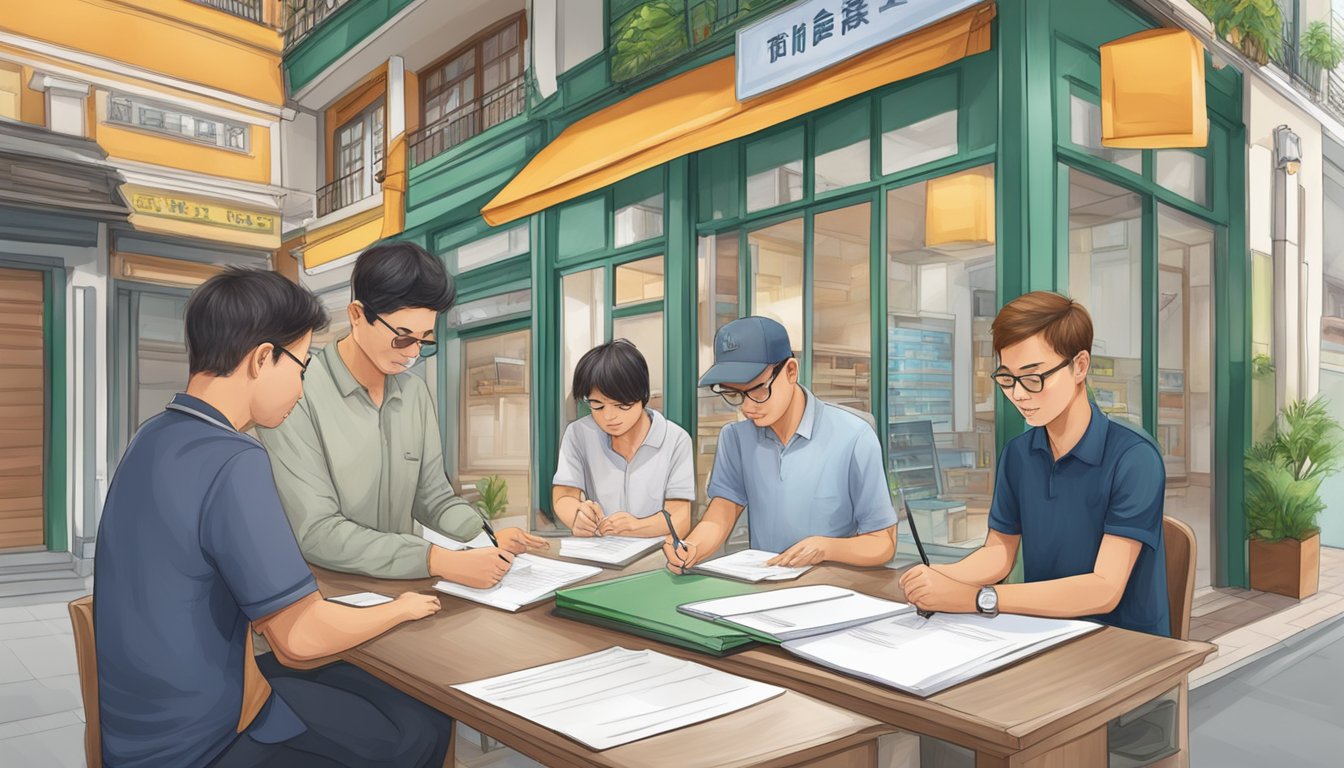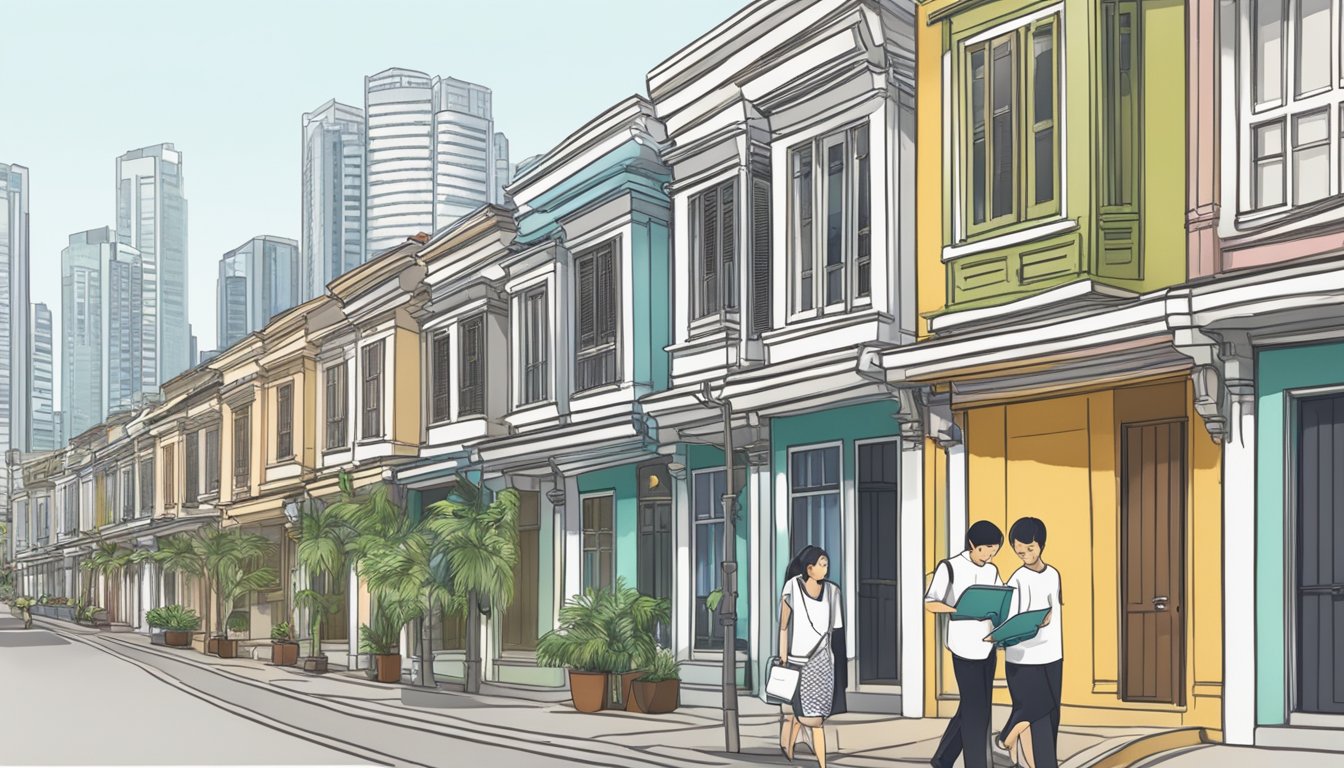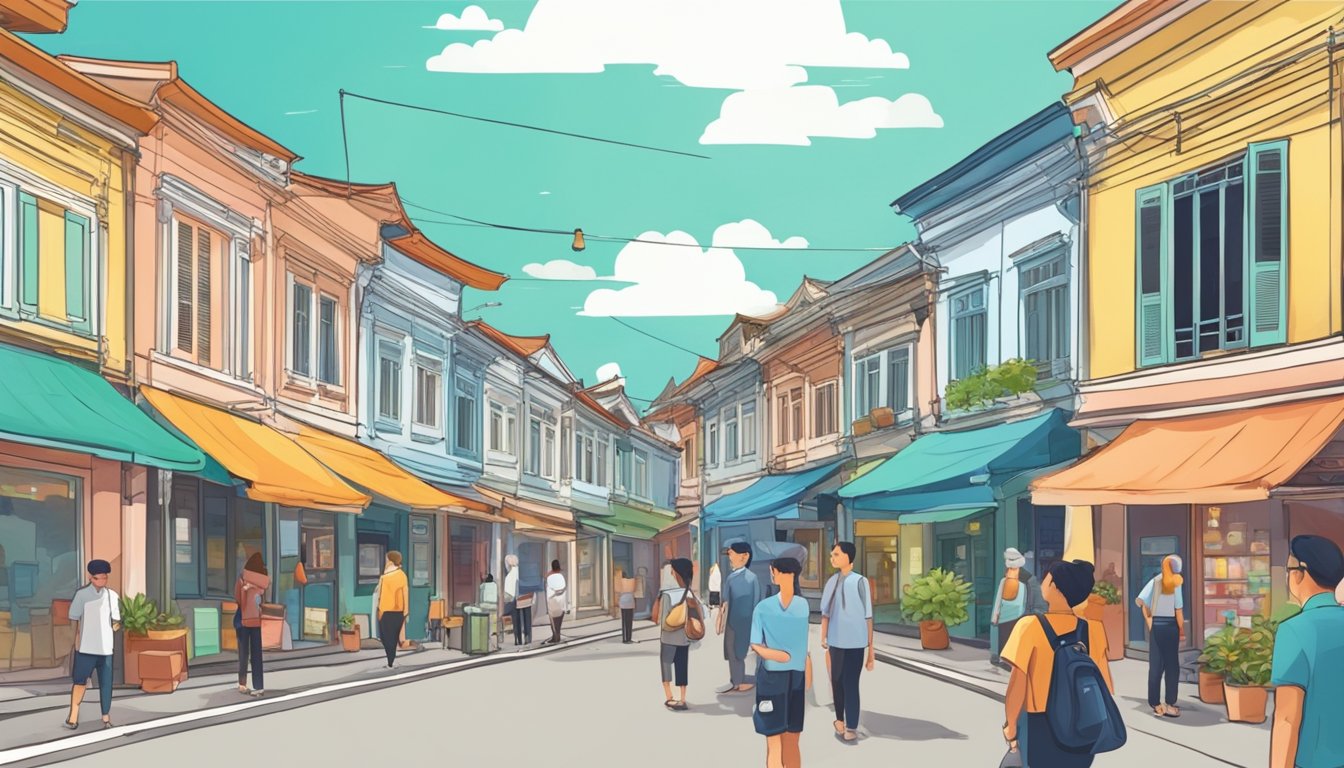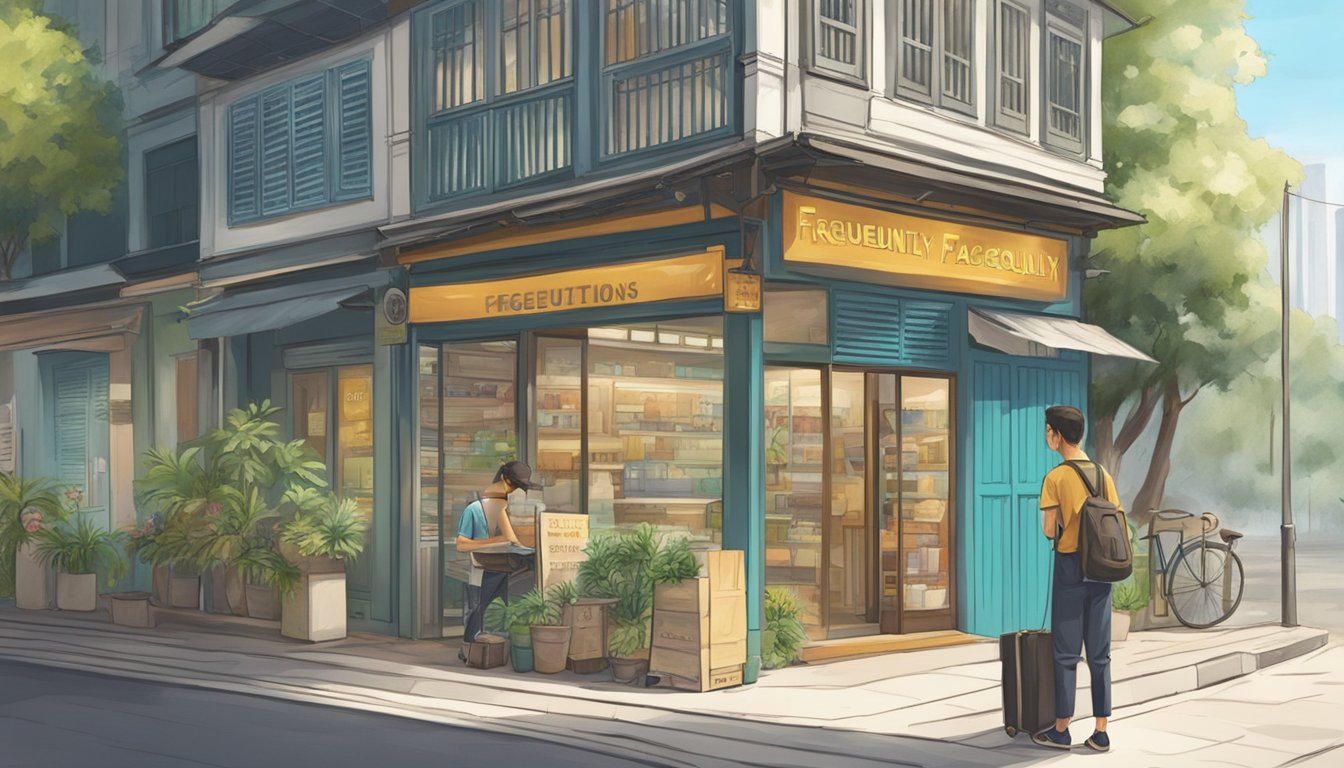If you’re a foreigner interested in buying a shophouse in Singapore, you might be wondering what the eligibility requirements and restrictions are. The good news is that it is possible for foreigners to buy shophouses in Singapore, but there are specific rules and approval requirements that apply, especially in unique cases such as purchasing a mixed-use shophouse. It’s important to conduct thorough research and evaluate multiple investment prospects to make informed selections when buying shophouses.

The process of buying a shophouse in Singapore can be complex, especially for foreigners who are unfamiliar with the country’s laws and regulations. However, with the right guidance and knowledge, you can successfully navigate the process and make a profitable investment. In this article, we’ll explore the eligibility criteria and restrictions that foreign buyers should be aware of when purchasing a shophouse in Singapore. We’ll also provide investment insights and opportunities to help you make informed decisions when investing in shophouses.
Key Takeaways
- Foreigners can buy shophouses in Singapore, but specific rules and approval requirements apply.
- Foreign buyers should conduct thorough research and evaluate multiple investment prospects to make informed selections when buying shophouses.
- Eligibility criteria and restrictions apply to foreign buyers when purchasing a shophouse in Singapore.
Eligibility and Restrictions for Foreign Buyers

If you are a foreigner interested in purchasing a shophouse in Singapore, it is important to understand the eligibility criteria and restrictions that apply to foreign buyers.
Understanding the Residential Property Act
Since 1973, the Singapore government has imposed various restrictions on foreign ownership of all private residential property in Singapore under the Residential Property Act. The Act specifies the private properties that foreigners are restricted from buying. Therefore, as a foreigner, you are only eligible to purchase certain types of properties in Singapore.
Navigating the Approval Process
To purchase a shophouse in Singapore, foreign buyers must obtain approval from the Singapore Land Authority (SLA) and the Land Dealings Approval Unit (LDAU) before proceeding with the transaction. The LDAU is responsible for reviewing and approving applications for the purchase of restricted properties by foreigners.
Examining Additional Buyer’s Stamp Duty (ABSD)
Foreign buyers are also subject to an Additional Buyer’s Stamp Duty (ABSD) when purchasing property in Singapore. The ABSD is a tax that is levied on top of the existing Buyer’s Stamp Duty (BSD) and is payable within 14 days of the purchase. The rate of ABSD varies depending on the residency status of the buyer and the number of properties they own in Singapore.
In summary, as a foreigner looking to purchase a shophouse in Singapore, you must be aware of the eligibility criteria and restrictions that apply to foreign ownership of private residential property under the Residential Property Act. You must also navigate the approval process with the SLA and LDAU, and be prepared to pay the ABSD on top of the BSD. By doing so, you can successfully purchase a shophouse in Singapore and enjoy the benefits of owning a commercial property in this vibrant city-state.
Investment Insights and Opportunities

As a foreigner looking to invest in shophouses in Singapore, there are various investment insights and opportunities you should consider to make informed decisions.
Assessing the Investment Climate
Before investing in shophouses, it is essential to assess the investment climate in Singapore. Singapore’s economy is stable and has a strong track record of growth, making it an attractive location for investment. Shophouses are a unique asset class that can provide a defensive asset in a diversified portfolio.
Identifying Prime Shophouse Locations
Identifying prime shophouse locations is crucial to maximising your investment returns. Shophouses located in prime locations can command higher rental yields and capital appreciation. Some of the prime locations for shophouses in Singapore include Chinatown, Katong, and Joo Chiat.
Maximising Returns on Shophouses
To maximise your returns on shophouses, you should consider various factors such as the rental yield, location, and investment prospects. Shophouses can offer attractive rental yields, with some shophouses commanding rental yields of up to 4%. It is also essential to consider the investment prospects of the shophouse, such as its potential for capital appreciation and future rental income.
In conclusion, investing in shophouses in Singapore as a foreigner can be a lucrative opportunity. However, it is crucial to conduct thorough research and evaluate multiple investment prospects to make informed investment decisions. By assessing the investment climate, identifying prime shophouse locations, and maximising your returns on shophouses, you can make the most of this unique asset class and contribute to Singapore’s economic growth.
Frequently Asked Questions

What are the regulations for foreigners purchasing commercial properties in Singapore?
Foreigners can purchase commercial properties in Singapore without any restrictions. However, they must obtain necessary approvals and meet eligibility criteria before they can buy any property. It is important to note that shophouses are generally classified as commercial properties, making it easier for foreign buyers to purchase them.
Are there any restrictions on foreign ownership of shop houses in Singapore?
Foreigners can purchase shophouses in Singapore, but they must meet eligibility criteria and obtain necessary approvals. It is important to note that shophouses are generally classified as commercial properties, offering more favourable regulations for foreign buyers.
How does the stamp duty affect non-residents buying Singaporean real estate?
Non-residents buying Singaporean real estate are subject to additional stamp duty. The stamp duty rates for non-residents are higher than those for Singaporean citizens and permanent residents. It is important to consider the stamp duty rates when buying any property in Singapore.
Is it possible for non-citizens to acquire freehold properties in Singapore?
Non-citizens can acquire freehold properties in Singapore, but they must meet eligibility criteria and obtain necessary approvals. It is important to note that the Singapore government regulates foreign ownership of landed properties.
Can international buyers invest in Singapore’s office spaces?
Yes, international buyers can invest in Singapore’s office spaces. However, they must meet eligibility criteria and obtain necessary approvals. It is important to note that regulations for foreign ownership of commercial properties are generally more favourable than those for landed properties.
What’s the eligibility for permanent residents to buy shophouses in Singapore?
Permanent residents can buy shophouses in Singapore, but they must meet eligibility criteria and obtain necessary approvals. It is important to note that shophouses are generally classified as commercial properties, offering more favourable regulations for foreign buyers.




